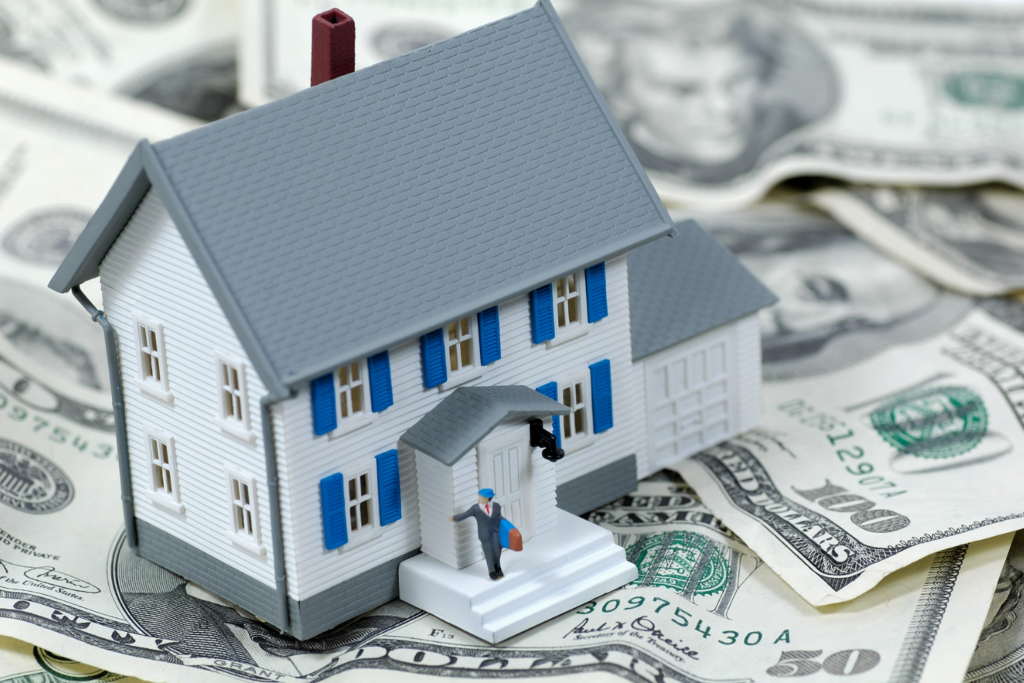
When you refinance your home mortgage, you can either save money or spend money. Learn the difference.
Refinancing can cost between 3% and 6% of a loan’s principal. Also, it will require an original mortgage, an appraisal, and a title search and application fee. It’s important for a homeowner to decide carefully whether refinancing will prove to be a smart financial decision.
Refinancing a home loan means paying off an existing loan and replacing it with a new one. There are many reasons why homeowners refinance; to obtain a shorter or longer-term mortgage, to obtain a lower interest rate, to convert from an adjustable-rate mortgage to a fixed-rate mortgage or vice versa, to consider debt, and many more.
Contents
- 13 Reasons To Refinance Your Mortgage
- 1. To shorten the loan term
- 2. To lower the interest rate
- 3. To lower your payment
- 4. From ARM to FRM and vice versa
- 5. To consolidate debt or have equity
- 6. Increasing the loan term
- 7. To go adjustable
- 8. Amortizing
- 9. To get cash
- 10. To buy someone out
- 11. To integrate many mortgages
- 12. To access a specific program
- 13. Always on the table option
- Conclusion
13 Reasons To Refinance Your Mortgage
Refinancing can potentially save you tens of thousands of dollars in interest paid. You may even pay off your mortgage sooner than expected. However, the time and effort could be worth it depending on your situation. Here, we have gathered some reasons to consider refinancing your home loan.
1. To shorten the loan term
If your home is financed at a higher interest rate, consider refinancing it to decrease the loan term. You can also change the loan term with a meager change in your monthly payment. For example, 30-year mortgage rates are more expensive than a 15-year loan rate. Refinancing will save you money just by taking the time to fill out the necessary paperwork and gather the needed documents.
2. To lower the interest rate
You can also consider refinancing to lower the interest rate. Historically, the rule of thumb is that refinancing is a good idea if you can reduce your interest rate by at least 2%. It can downsize your monthly payment. As of now, 30-year mortgage rates are hovering above 3% and 15-year loans can be secured for lower interest rates. Maybe the time is right for you to get your loans fixed.
If you originally opted for owner financing, also known as seller financing, you may definitely want to consider refinancing as owner financing often comes with higher down payments and interest rates compared to traditional mortgages. This can result in increased costs for buyers.
3. To lower your payment
When you are refinancing your home loan for lower interest rates, you can drastically reduce your payment and save hundreds of dollars per month. The saved money can be invested or used elsewhere.
4. From ARM to FRM and vice versa
If you are refinancing your home, consider switching from an adjustable-rate mortgage (ARM) to a fixed-rate mortgage (FRM). Fixed-rate mortgages can protect you from rising interest rates. Also, a fixed payment is easier to plan for and budget. You can also move from a fixed rate to an adjustable rate according to your circumstances.
5. To consolidate debt or have equity
Home refinancing can be a battle that never ends debt. Homeowners take the facility of having equity in their homes to cover major expenses such as the cost of a home renovation or a child’s education. Also, a key point to remember is that the interest on mortgages is tax-deductible.
It is also a common practice in homeowners that they do refinancing to consolidate their debt. In this way, it becomes easy for them to pay their debt.
6. Increasing the loan term
Some people also refinance because they want to increase the loan term as it becomes unbearable for them to pay monthly payments. In such cases, the monthly payment reduces to an affordable price. It costs more interest but gives you an advantage for a time being.
7. To go adjustable
Earlier we talked about people moving from ARM to FRM, few individuals often like to move from RRM to ARM. They do this to reset their rate and also reset their fixed-rate period on the new ARM. Plenty of wealthy people move from FRM to ARM. This action allows them to take advantage of cheap short-term rates.
8. Amortizing
To avoid a steep monthly payment increase, a homeowner might like to fully amortize and leave the interest-only (I-O) product as the I-O period lasts only for 10 years. Not sure what an I-O period is, The Balance explains.
9. To get cash
Maybe the homeowner only wants to refinance simply to get cash out of their home.
Perhaps you want to do some home improvements or buy a second home or any other property, or maybe you want to diversify and move your cash into the stock market instead. There can be thousands of reasons.
10. To buy someone out
In certain situations, you want to remove someone out of your mortgage or from the title. Then, refinancing can be the best option.
For example, there can be a divorce between a couple or someone who wants to remove parents as co-signers. For all the above reasons, you can consider refinancing as an option.
11. To integrate many mortgages
Another reason to refinance your home can be consolidating your multiple mortgages (hopefully two) into one. By refinancing, you will be taking benefits of lower interest rates. Many other mortgages have sky-rocketing interest rates but are adjustable. Consolidating into one can be money-saving more.
12. To access a specific program
You may also want to refinance because you want to take advantage of a specific program. You fear that it will be gone before you can take it. For example, this could be a program like HARP which allows underwater borrowers to refinance.
If you like the program and see it as fair trade, you can easily go for refinancing.
13. Always on the table option
One final reason for refinancing is simply because you can. While you can enjoy the benefits of refinancing at the present time, you should go for it. There is never a guarantee whether you will qualify or not for it in the future. You could also face some kind of financial hardship or troubling circumstances in the future. So make it possible to refinance now when you can easily qualify.
Conclusion
Before you do commit to refinancing, click here to ask yourself a few questions about remortgaging. In the end, we warn you to consider refinancing decisions carefully as it is a tricky business. You should thoroughly study your needs and act according to your particular situation. With some thorough research and smart planning, refinancing your home could turn out to be the best thing for you and your family.




